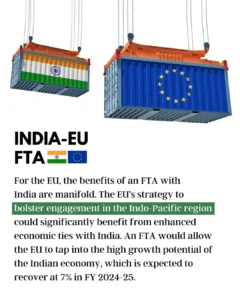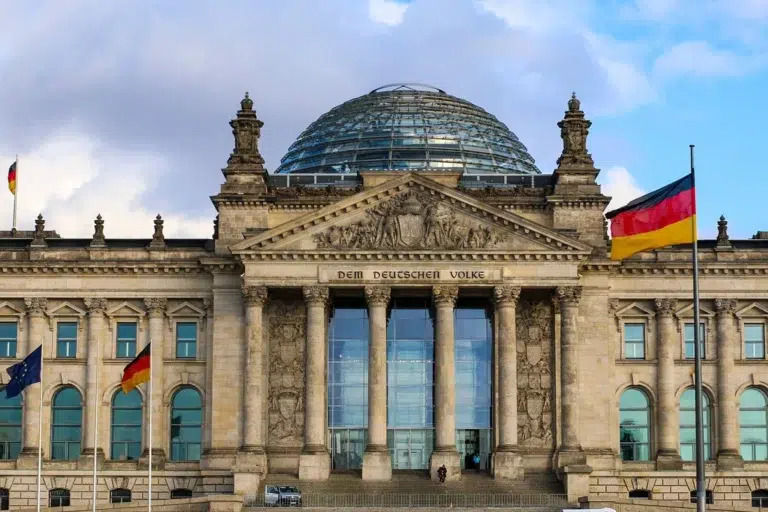Germany elections 2025: The German federal election, set to take place on February 23, 2025, isn’t just a German affair — it’s a global one, especially for India. The strong economic relationship between the two countries means the election’s outcome could quickly translate to India’s economy, trade, and strategic partnerships. With Elon Musk’s controversial support for Germany’s far-right AfD party, this election has become a defining moment in both countries’ politics, raising questions about how it might change Germany’s policies and its relationship with India.
Germany is not just India’s biggest trade partner; it is its most important European friend. For decades, the two countries have enjoyed a strong economic relationship; Germany is India’s biggest EU trading partner. Collaboration in the automobile, machinery, renewable energy and IT services sectors has spurred innovation, jobs and mutual growth. But as the election nears, questions loom: Will the new government strengthen these ties, or will a shift in political priorities challenge India?
It’s a high-stakes election. But the fact that global players like Elon Musk and Donald Trump are lending their support to the AfD only deepens the interest. Germany’s new nationalist, anti-immigrant government could shift the country’s approach to trade, climate policies and international partnerships — all of which are important to India. As the world watches Germany undergo a political transformation, India is paying close attention to how the election shakes up trade deals and green energy cooperation.
1. The Backbone of Indo-German Trade Relations
Germany is India’s largest trade partner in the EU, with bilateral trade surpassing $30 billion a year. There is a strong economic partnership, with co-operation in the automobile, machinery, renewable energy, pharmaceuticals and IT services sectors. German companies like Siemens, Volkswagen, BMW and Bosch have invested in India and contributed to innovation, job creation and technology transfer.
Germany has also been India’s key partner in the field of sustainable development, including in the field of renewable energy such as solar projects or hydrogen initiatives. Any shift in German political and economic policies could put these long-standing trade and investment flows at risk, making the outcome of the election very important for Indian businesses and policymakers.
But the strength and growth of this partnership is not indestructible, especially against external forces, particularly political changes. The 2025 German federal election could have an impact on Indo-German trade relations. A change in Germany’s political or economic policies could alter the established trade and investment flows that have characterized this partnership for decades. A protectionist government may implement stricter trade regulations or limit foreign investments, impacting Indian companies and industries that rely on German technology and expertise.
2. How Germany Election Could Shape Trade and Investment
The election outcome will affect Germany’s stance on global trade, investment rules and economic relationships. A pro-business government in Berlin could deepen ties with India and invest more in manufacturing, technology and infrastructure. But protectionist policies or a focus on the domestic economy could slow trade talks and foreign investment.
India, which is looking to expand its trade footprint across the world, needs a stable and co-operative Germany. The election outcome could either create new avenues for Indian exporters or create hurdles in accessing Europe’s largest market.
3. Green Energy and Climate Collaboration at Stake
Germany has been supportive of India’s renewable energy targets, sponsoring projects in solar, wind and hydrogen energy. The two countries have also collaborated on climate research and sustainable development. If the new German government scales back climate commitments or moves away from green energy, funding, joint projects and technology sharing could be affected. German companies, research institutions and development agencies have been providing funding, technology and knowledge to scale up India’s renewable energy infrastructure. Germany’s development agency, GIZ, for instance, has been actively supporting India’s solar energy initiatives, helping the country meet its ambitious 500 GW renewable energy capacity goal by 2030.
This is especially true for India, which relies on international partnerships to meet its ambitious climate goals. Any slowdown in Germany’s green energy initiatives would be a setback to India’s transition to a low-carbon economy.
4. The EU-India Free Trade Agreement: A Key Factor

Germany is a key driver of trade policies in the EU and its views on the EU-India FTA could change depending on the outcome of the election. A pro-business German government could push for finalization of the FTA – which would open up new export opportunities for India and strengthen economic ties between the two regions.
Conversely, a more protectionist or nationalist government could slow down or complicate negotiations and leave Indian businesses in limbo. What happens to the FTA will have a big impact on India’s access to the European market and its global competitiveness.
5. The AfD Factor: Trump, Musk, and India’s Concerns
The rise of Germany’s far-right AfD party — which some reports say has received support from Donald Trump and Elon Musk — also adds uncertainty to the election. The AfD’s nationalist, anti-immigration agenda could lead to big changes to Germany’s economic and foreign policies.
For India, this could mean a tightening of visa regimes that would affect Indian professionals and students, a slowdown in renewable energy partnerships, and trade policies that would prioritize national interests over global partnerships. Elon Musk’s support for the AfD complicates matters given his large business interests in Germany. Questions will be raised about Germany’s business climate and how it would affect international stakeholders like India.
As Germany heads to the polls for a much-awaited election, the world is watching closely and expecting some important outcomes. For India, the election is more than just an amorphous political exercise far away; it is a critical juncture that could define its economic future and its global trade agenda. The stakes are high and the outcome will determine if the strong Indo-German partnership continues to thrive or faces new challenges in the changing global environment.




